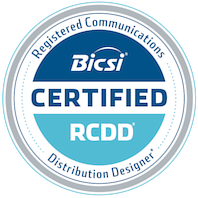A comprehensive cloud communications solution is commonly provided as an alternative when enterprise firms hunt for a voice solution.
Competitors showcase new features and pricing to attract customers’ attention as new cloud-based technology is developed and market demand continues to shift in that direction. All of these specifics can sometimes obscure the overall benefits of cloud communications solutions.
What is a Cloud Phone System, and How Does It Work?
The cloud is just software and services that run on the Internet rather than on equipment in your premises. You may access the information from anywhere because the documents, emails, images, and other applications stored in the cloud are accessible from any device with an Internet connection.
You’re probably already employing cloud technology in other areas of your company. Cloud-based apps include Google Drive, Microsoft Office 365, and Dropbox, to name a few.
The ability to have a secure, scalable, and dependable application without having to install, configure, or manage hardware is familiar to most people. Cloud phones, also known as virtual PBX, are a SaaS solution that is hosted and kept digitally.
This means your IT personnel won’t have to worry about managing wires, tapes, or a central server. It is frequently less expensive, easier to use, and install. Cloud phone calls are typically transmitted over a secure Internet connection rather than the public Internet, boosting a company’s level of security.
Virtual phone systems have the same functions as onsite phone systems, but the service is managed by the cloud provider, which relieves IT of most or all maintenance and troubleshooting. All of the functions of an onsite system, such as voicemail and call recording, are available, but everything is managed remotely. Some cloud phone systems include even more capabilities and benefits, such as the ability to convert conference calls into online meetings that include texting and video.
Who Needs Cloud Phones?
Because the application is hosted and managed by a third-party, a cloud phone system can assist small and medium-sized enterprises stretch limited IT resources. A cloud phone can be set up by anyone, making it a popular solution for small businesses without a specialized IT department in recent years.
Because of the ease of adoption and flexibility, mid-sized businesses with an IT team can also benefit. Using a cloud phone system frees up critical IT resources for other important initiatives and apps in your overall business plan.
The following are the top five advantages of a complete cloud communications solution for enterprise businesses:
Work-at-Home Resources
The following tools and capabilities are available with cloud-based phone systems, all of which are advantageous to work-from-home employees:
- Auto Attendant: This virtual assistant greets callers and reroutes calls using a thorough menu.
- Find-Me/Follow-Me: The former delivers incoming calls to a specific location, while the latter sends them to any chosen phone, ringing simultaneously or sequentially.
- Caller ID: Especially important for BYOD users, the company’s phone number appears instead of the employees’ own cell or home phone numbers.
- Call Queuing: When the volume of incoming calls exceeds the number of available staff, this feature automatically queues callers. Nice messages can be played, and some more modern systems even give you the option of “keeping your position in line and getting a call back when it’s your turn.”
- Call recording: Record crystal-clear audio for archiving or sharing with the team. This is also useful for onboarding new employees (learning from more experienced team members).
- Voicemail Forwarding & Access: Assign messages to other members of your team and convert voicemails to voice or email.
Mobility/BYOD
Most BYOD users were referred to as mobile employees or road warriors prior to COVID-19. Now, with social distancing regulations, work-from-home employees (and occasionally an entire crew) use it just as much!
For these new settings, a cloud-based phone system simply enables mobility and BYOD measures. Take into account the following characteristics:
- Desktop & Softphone App: On any desktop or laptop, this app simulates a classic handset.
- Mobile Device App: Employees may stay connected no matter where they are. They can receive and respond to calls and messages without providing a personal phone number or email address.
- Web-Based Switchboard: A user-friendly, intuitive web-based “switchboard” application and/or user/manager portal should be able to examine and alter many system functionalities.
Security
It’s critical to be aware of any potential security threats ahead of time and understand how to avoid them. Phishing, fraud, intercepted calls, spoofing, and other security risks are all common, but they can all be avoided with the correct security in place.
A cloud solution provides better protection for you and your company than a traditional phone system. Traditional on-site phone equipment is typically housed and locked in a storage closet in the office, allowing the company to implement simply standard security measures. The cloud, on the other hand, has a lot more to offer.
To keep users and their data safe, cloud phone services employ a variety of security methods such as data encryption, network security, secure voice and video, HIPAA-compliance measures, and more. Furthermore, cloud communications keeps all of its servers and other equipment in locked-down premises.
Cost
When it comes to selecting a communications solution, all firms must consider price. Startups and smaller businesses do not have the same budgets as larger businesses; therefore, they must compare prices before deciding on a specific service.
When cloud-based solutions are compared to traditional on-premises options or traditional phone lines, the cloud wins. The majority of cloud phone solutions charge per user and include unlimited local and long-distance calling.
Furthermore, cloud phone systems provide low-cost international calling and free on-network calling, which helps to reduce expenditures.
Network Redundancy
If your customers are unable to contact you, sales will cease, and your business will grind to a halt. On-premises power outages and other system failures leave you stranded until your IT team or an outside service provider can get you back online.
To maintain uptime SLAs, avoid service interruptions, and keep their clients online, cloud communications service providers put precautions in place and frequently construct a redundant network.
Given the advantages that comprehensive cloud communications solutions provide to organizations, it’s no surprise that technology resellers are flocking to VoIP system suppliers; their clients want them to provide a cloud-based solution.
At Telco Data, we offer a wide variety of cloud based VOIP phone systems to businesses in Austin, Texas. Contact us for help with your organization’s platform, or to request a quote.







